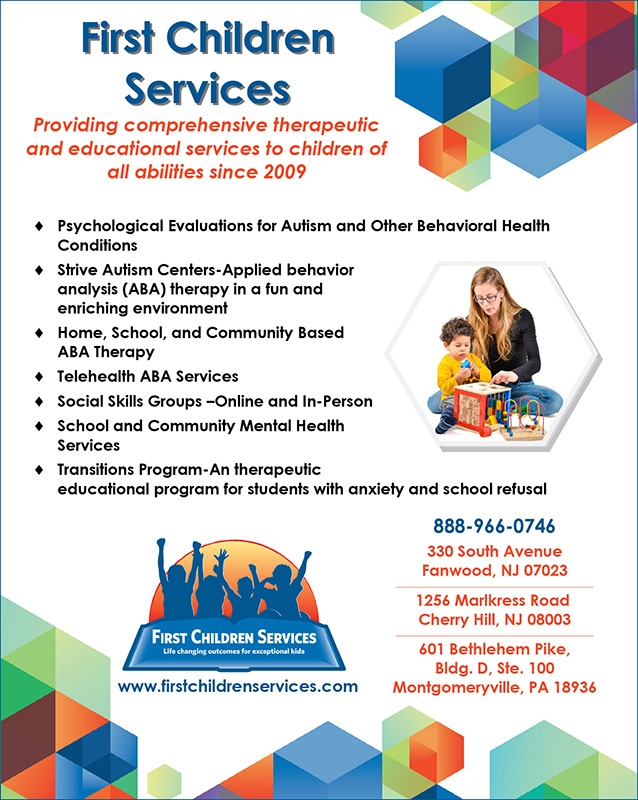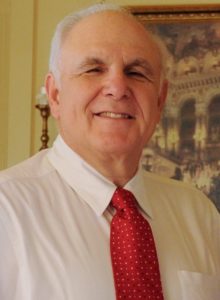It is well known, but not fully appreciated, that an ASD diagnosis triggers a tsunami of emotions within the family of the autistic individual. Many established ABA provider groups have realized that the needs of parents and siblings of ASD individuals should be tended to via an interdisciplinary treatment approach. While ABA services are frequently the intervention of choice, it is not the only treatment option. First Children Services has developed a STRIVE model for this purpose. This article will highlight the clinical pathway leading to the choice of a behavioral health care intervention for addressing the pressing emotional and behavioral needs of an ASD youth. In this instance, both child and parent were engaged in the treatment process.

Case Illustration
The following client was referred to our STRIVE Diagnostic Clinic. The child and family subsequently initiated psychological counseling with a licensed clinician. All identifying information has been changed.
Sam is a 9-year-old Caucasian male who presented with his mother for diagnostic clarification. He was referred by his pediatrician for concerns about autism spectrum disorder (ASD). Sam was previously diagnosed with Generalized Anxiety Disorder and is prescribed Zoloft, 100mg. According to his mother, Sam has a longstanding history of social difficulties. Specifically, Sam has had difficulty relating to other children and reading social cues. He has always had a tough time making friends, taking cues from peers, making eye contact, and acting very shy in front of others. He does not often reciprocate social interactions. Though Sam has a small group of friends that he has had since kindergarten, he has had difficulty making new friends since then.
Sam often has trouble with transitions. He usually flops to the ground when there are unexpected changes. His mother describes him as “rigid” and that he often thinks in “black and white” terms. Sensory issues are present. Sam does not like loud events (fireworks, movies, crowded cafeteria) and maintains a very restricted diet.
Sam’s evaluation included a structured ASD interview with Sam’s mother, consultation with Sam’s pediatrician, clinical observation, rating scales completed by Sam, his mother and teachers, and the administration of the Autism Diagnostic Observation Schedule, Second Edition (ADOS-2). The ADOS-2 is a semi-structured, standardized autism assessment tool, and is considered the “gold standard” instrument for diagnosing autism.
The evaluation supported the diagnosis of ASD. Sam’s mother was provided feedback on the evaluation, psychoeducation about the results, and recommendations to help support Sam and his family. Evidence-based, cognitive-behavioral therapy (CBT) was recommended to address Sam’s anxiety and social skills, and parent training and counseling was also recommended for Sam’s mother. Sam’s mother was additionally provided information on school-based supports, e.g., Individualized Education Program (IEP) or Section 504 Accommodation Plan.
Sam initiated psychological counseling with a licensed clinician at our STRIVE Center. Counseling sessions are held weekly. Sam’s mother participates at the conclusion of each session and attends parent counseling once per month. Sam receives CBT to address social anxiety, nervousness, worry, and social skills. Goals include emotional identification and labeling, cognitive reframing, coping skills, problem-solving, and distress tolerance. His sessions include modeling, roleplay, rehearsal, and review of “homework” assignments. Play has been incorporated to maintain rapport and practice social skills. His mother receives psychoeducation during her sessions, training on how to help Sam generalize skills learned in therapy, and an opportunity to process her own emotional experiences raising Sam. Future appointments will include joint parent-child sessions so they can learn collaborative problem-solving techniques and improve communication in the family. Progress in the identified skill areas is being made.
Discussion
There are critical clinical choice points in comprehensively meeting the needs of ASD individuals while skills and behavioral needs must be identified and formally represented in treatment plans. Social skills groups, individual skills training, CBT counseling and parent training can be delivered by BCBA’s, psychologists and other licensed clinicians as training and circumstances dictate. Given the significant client demand for services, long waiting list that impede access to care, and the emotional needs of parents and siblings that often go unsupported, First Children’s treatment model has evolved. The array of clinicians on staff expanded and an interdisciplinary treatment model was developed to comprehensively address the needs of the autistic individual and their family members. This appears to be a growing trend for providers of ASD services.
Howard Savin, PhD, is Consulting Chief Clinical Officer and Jeffrey Selman, PsyD, BCBA, is Vice President of Clinical Services at First Children Services. For more information, visit www.firstchildrenservices.com.





